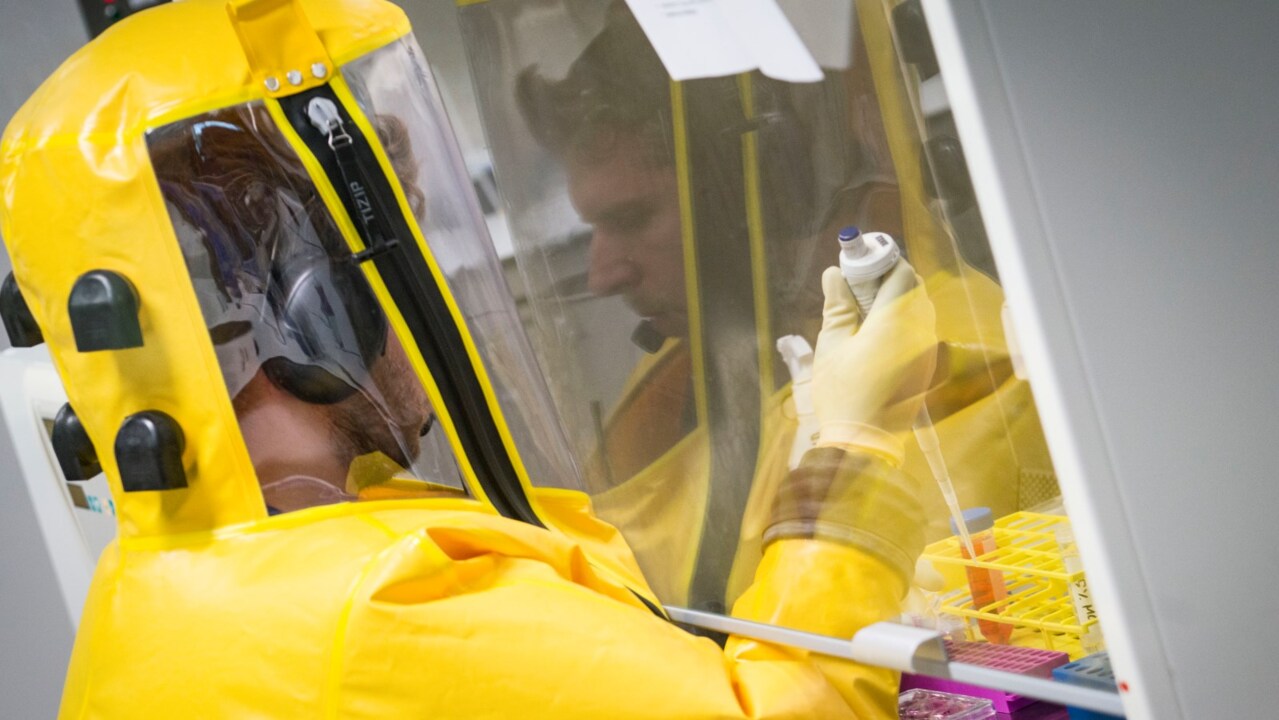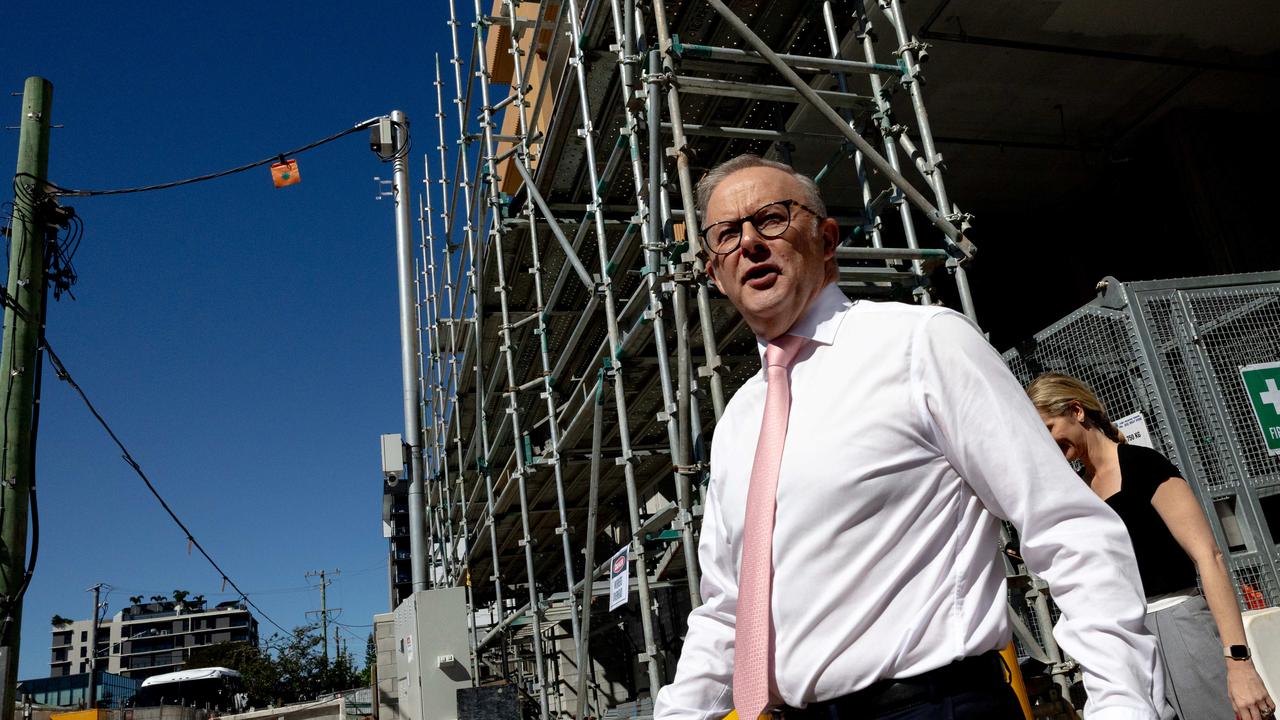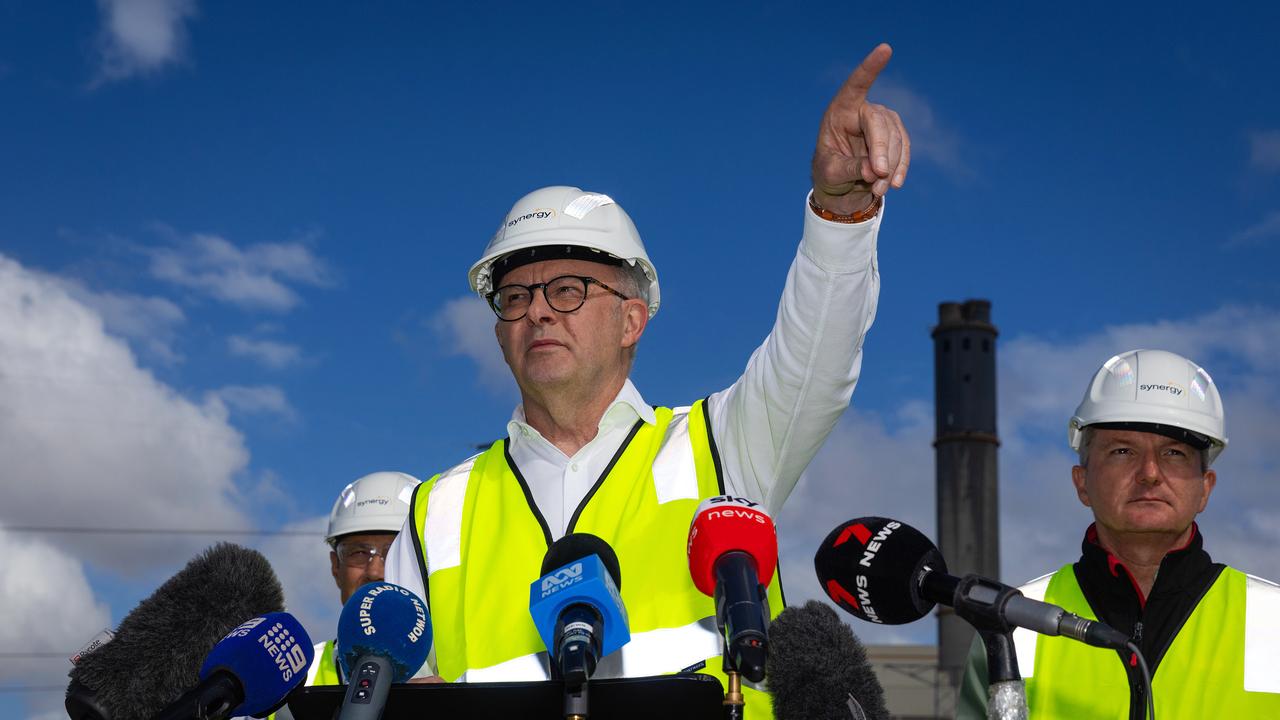Coronavirus: Major clinical trial set for virus treatments
Patients hospitalised with COVID-19 in Australia will be asked to join a trial to assess two potential drug treatments.

Almost every patient who is hospitalised with COVID-19 in Australia will be asked to participate in a clinical trial that aims to assess whether two potential drug treatments for coronavirus are effective.
The major clinical trial, known as the ASCOT study, will involve every hospital around the country that is caring for COVID-19 patients. Patients who are sick enough to require hospitalisation but not requiring admission to intensive care will be asked to participate.
A quarter of the patients will be given the drug hydroxychloroquine, currently used to treat arthritis and prevent malaria, a quarter will be given the anti-HIV drug lopinavir, also known as ritonavir. A quarter will be given a combination of the two drugs, and a quarter will be given no treatment.
The trial, led by Steven Tong, a Royal Melbourne Hospital infectious diseases clinician and co-lead of clinical research at the Doherty Institute, is expected to run for 18 months and involve more than 2000 patients. COVID-19 positive patients will also be recruited internationally.
Professor Tong said the aim of the trial was to assess whether administration of the drugs prevented patients becoming sick enough to be admitted to intensive care.
“The aim is really to see whether using these drugs will prevent patients deteriorating to the point of needing a ventilator,” Professor Tong said.
“The World Health Organisation considers that both of these drugs are promising treatments for COVID-19 but more research is needed so we can be sure whether they are safe and effective.
“Some studies have shown that these two drugs can work against the virus in the laboratory, but we need to now test them in patients to know for sure whether they will work in humans. Drugs that show promise in the laboratory don’t always translate into being effective in patients.”
Patients who are admitted for COVID-19 treatment at the Royal Melbourne Hospital are already being screened for recruitment to the trial. Screening for other patients will soon begin at other hospitals around the country.
One of the principal investigators for the clinical trial, Josh Davis from the Hunter Medical Research Institute, said the study would open up opportunities for treatment for COVID-19 patients that would not be available outside of the context of a clinical trial.
“Given that 30 of Australia’s 31 principal referral hospitals will be participating in this trial as well as many smaller hospitals, it means that the majority of Australian and New Zealand patients will have access to COVID-19 treatments within the context of a clinical trial,” Professor Davis said.
But clinical trials of a drug that has shown the biggest promise in the treatment of COVID-19, Remdisivir, will not be able to proceed in Australia due to a global shortage of that drug.
The manufacturer of Remdisivir, US-based biotech Gilead, has declined to make the drug available to Australian researchers due to limited stock.
The drug lopinavir, which has the brand name Kaletra, has been used on a number of patients who were being treated in intensive care at the Gold Coast University Hospital. The patients improved after administration of the treatment.
However, a recent study published by the New England Journal of Medicine that reported results of a randomised study in Wuhan found administration of lopinavir did not lead to greater clinical improvement in COVID-19 patients than standard supportive care, and did not decrease viral load in coronavirus patients.
The investigators in the ASCOT study said they would examine whether lopinavir worked more effectively in combination with hydroxychloroquine.
There are more than 100 clinical trials around the world involving hydroxychloroquine as a treatment for COVID-19 patients.
Partner organisations involved in ASCOT trial are the Hunter Medical Research Institute, Australasian Society for Infectious Diseases Clinical Research Network and University of Queensland Centre for Clinical Research at the Royal Brisbane and Women’s Hospital.
The Royal Brisbane and Women’s Hospital Foundation, Anthony Pratt and The Pratt Foundation and the Minderoo Foundation have all contributed donations to the trial.








To join the conversation, please log in. Don't have an account? Register
Join the conversation, you are commenting as Logout